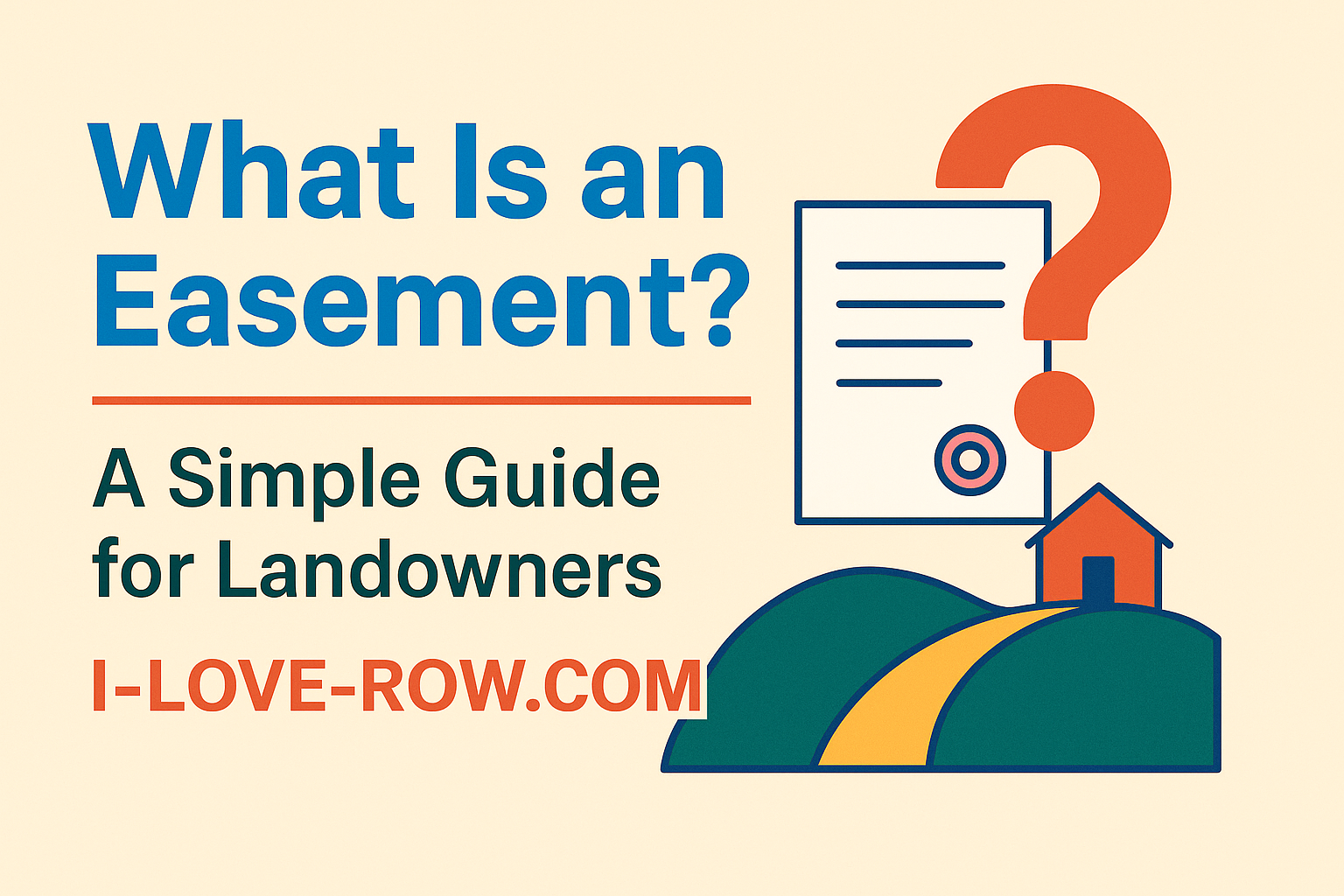What Is an Easement? A Simple Guide for Landowners
If you own land, you may have heard the term easement and wondered what it means. Easements are common in property ownership, and understanding them is key to protecting your rights as a landowner. In this guide, we’ll break down what an easement is, the types of easements, and what they mean for your property.
What Is an Easement?
An easement is a legal right that allows someone else to use a portion of your property for a specific purpose. While you still own the land, the person or company with the easement can use it in certain ways—such as accessing a neighboring property, running utility lines, or maintaining pipelines.
Easements are recorded in public records and typically stay in place even if the property changes hands.
Common Types of Easements: Here are some of the most common easements landowners encounter:
Utility Easement
This gives utility companies the right to install and maintain equipment like power lines, water pipes, or communication cables on your property.
Right of Way Easement
This type allows others to travel across your land, often for access to roads or neighboring properties. It’s common for driveways or shared access roads.
Private Easement
A private party, like a neighbor, might have a specific right to use part of your land—such as crossing your property to reach their own.
Easement by Necessity
This is granted when a property is landlocked and needs access through another property to reach a public road.
How Easements Affect Landowners
If your property has an easement:
You still own the land, but your use may be limited in the area covered by the easement.
You can’t block or interfere with the easement’s intended use (such as fencing off a utility easement area).
Easements typically stay with the land if you sell it.
It’s important to check your property records or survey to see where easements exist.
Can Easements Be Removed?
In some cases, easements can be removed or modified, but it often requires:
Agreement from the party benefiting from the easement
A legal process, including updating property records
An attorney or right-of-way professional can help you review or challenge an easement.
What Landowners Should Remember
Easements are a normal part of property ownership, but they can affect what you can do with your land. Knowing where easements are and what they allow helps you avoid disputes and plan projects wisely.
If you’re unsure about an easement on your property or need help negotiating with a utility, developer, or neighbor, consult a right-of-way expert.
